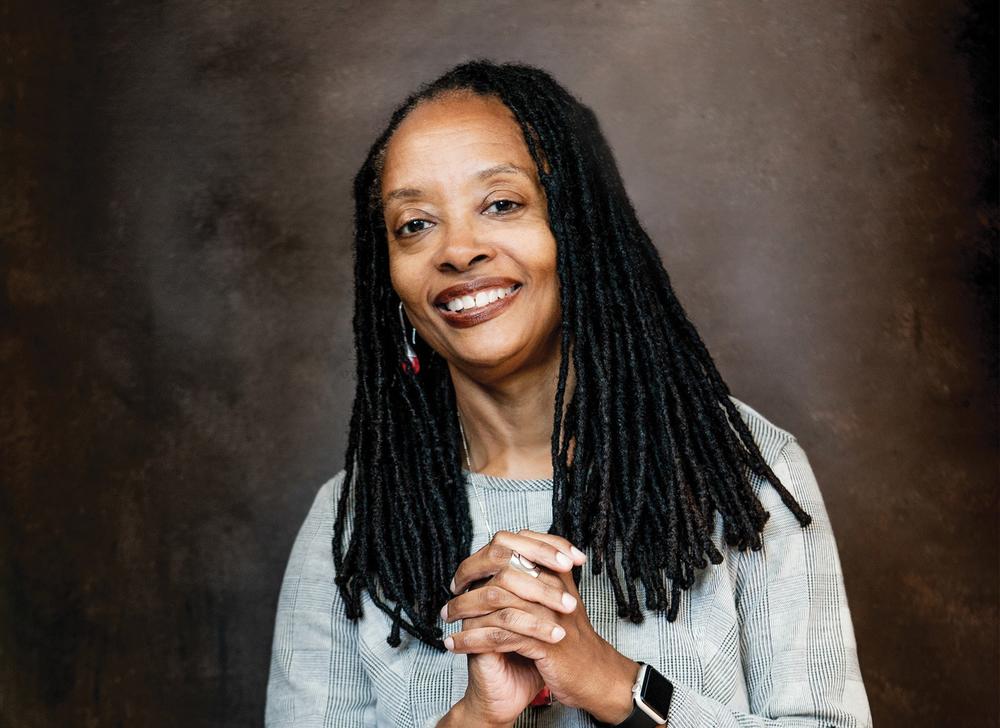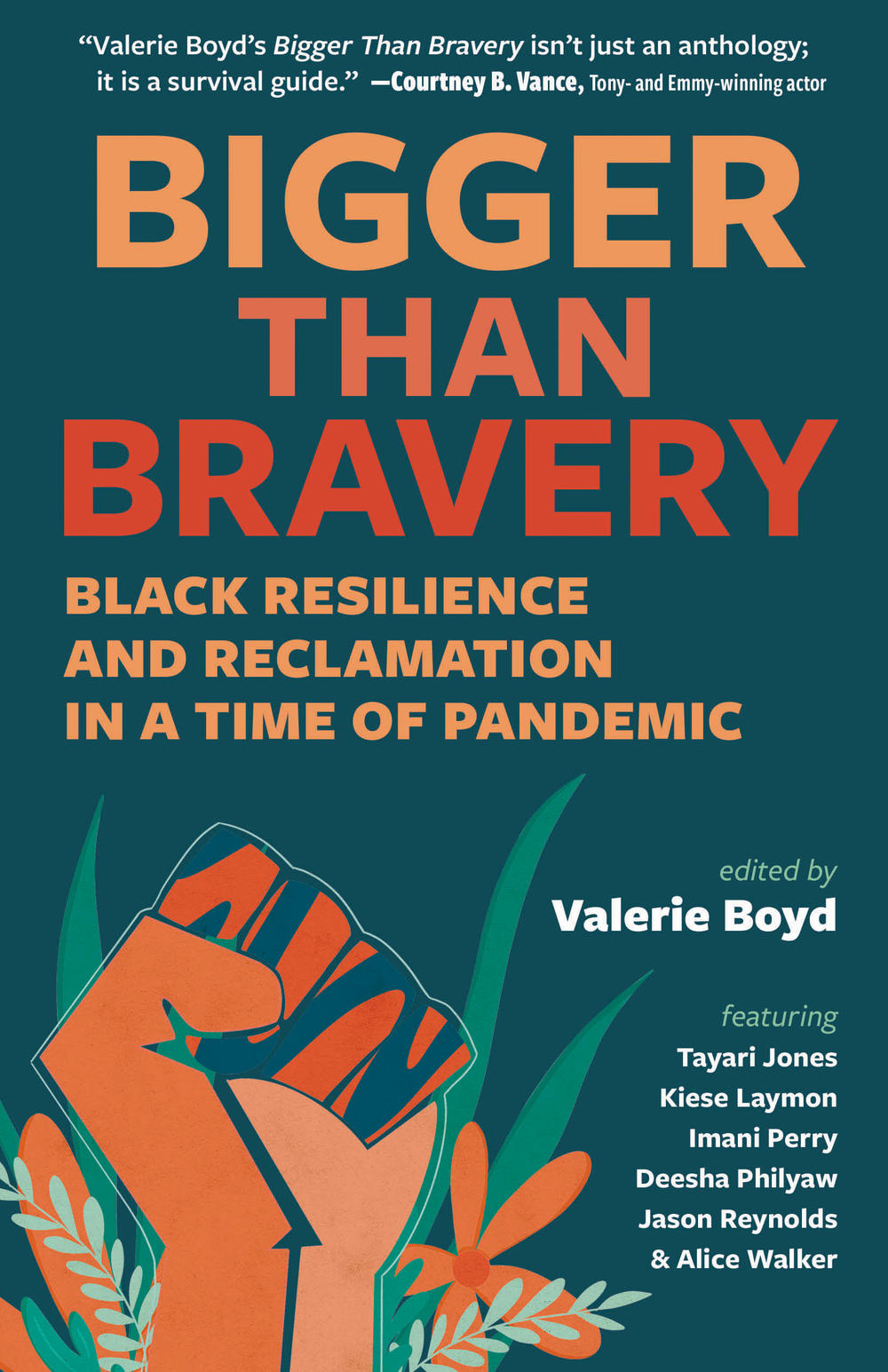
Caption
The late Valerie Boyd, an Atlanta native, is the editor of 'Bigger than Bravery.' Boyd died in February 2022.
Credit: Jason Thrasher
|Updated: March 29, 2023 1:25 PM
LISTEN: GPB's Peter Biello speaks with editor KaToya Fleming about "Bigger than Bravery," a new anthology of work by dozens of Black authors reflecting on the pandemic.

The late Valerie Boyd, an Atlanta native, is the editor of 'Bigger than Bravery.' Boyd died in February 2022.
During the height of the COVID-19 pandemic, author and Atlanta native Valerie Boyd pitched a collection of essays by Black authors who would capture in real time how they weathered the storm. That book is now a reality, but Boyd is no longer with us: She died last year of pancreatic cancer. KaToya Fleming, editor-at-large for Lookout Books, spoke with GPB's Peter Biello about it. It's called Bigger than Bravery: Black Resilience and Reclamation in a Time of Pandemic.
Peter Biello: Tell us about Valerie’s pitch for this book. How did she spell out her vision for it?

KaToya Fleming: Valerie is my former mentor from [the University of Georgia]. I was a student of hers in the MFA program at UGA and when I landed at [University of North Carolina-Wilmington] as editor at Lookout Books, she approached me with a proposal for an anthology, a pretty ambitious anthology, with a dream roster of writers that she wanted, to speak to the ways they had survived — for lack of a better way to say that — the pandemic; the ways that Black writers had reclaimed their joy during the pandemic. And having Black writers speak to something other than trauma — it was something that wasn’t happening in literature at the time, so I was excited about having that be my first acquisition and working on that project with her, together.
Peter Biello: There’s a wide range of essays here in this collection. There are some poems as well. Folks in Georgia will be glad to know some are based in Atlanta. There’s one where an author watches from their window in the Old Fourth Ward neighborhood as someone digs through the trash and eats some of it. What a powerful scene that was.
KaToya Fleming: Yes. That's Shay Youngblood’s essay. It touches on — that essay and several others — the ways in which we connected to each other as humans during that time. There were so many different ways that each of us learned to isolate during the pandemic, whether it was music or food or the different ways that we comforted ourselves during those periods of being alone. But Shay’s essay in particular talked about her comforting herself with food but also realizing that there were people that had to do without.
Peter Biello: I don’t want to give the impression that this is the only food in this book. There’s a lot of food here.
KaToya Fleming: Oh, absolutely. Absolutely.
Peter Biello: Can you talk a little bit about the way food was a source of joy and strength for people in this book?
KaToya Fleming: Absolutely. Destiny Birdsong’s essay deals with food in a way that speaks to the essence of what makes food so essential to our well-being. It speaks to how food creates family, creates memories for us and why it became such a source of comfort. The opening essay in the book, Jason Reynolds’ “Char” talks about how a barbecue grill became a source of comfort for him because it was a way to connect to his father, who was dying of cancer. So there are so many different ways that food was employed as a method of connection.
Peter Biello: Music played a big role in this book as well and I understand there’s a Spotify playlist that goes along with this book now. Can you tell us about it?
KaToya Fleming: Sure. The writers gave us a list of songs that got them through the pandemic. Imani Wilson, in particular. her essay talked about specifically the music that got her through the pandemic and she has this great quote: “Music was the thing that held me together, a tight embrace.” And we thought it would be a great way to sort of bring together all the ways that music connected us, not just to the pandemic experience but to each other, connects us to one another. We asked the writers, “What’s a song that got you through?” And they all contributed a song and we put that together in a playlist, our “Quarantine Joyrides Playlist.” We have that whole list of contributor-curated tunes up on Spotify.